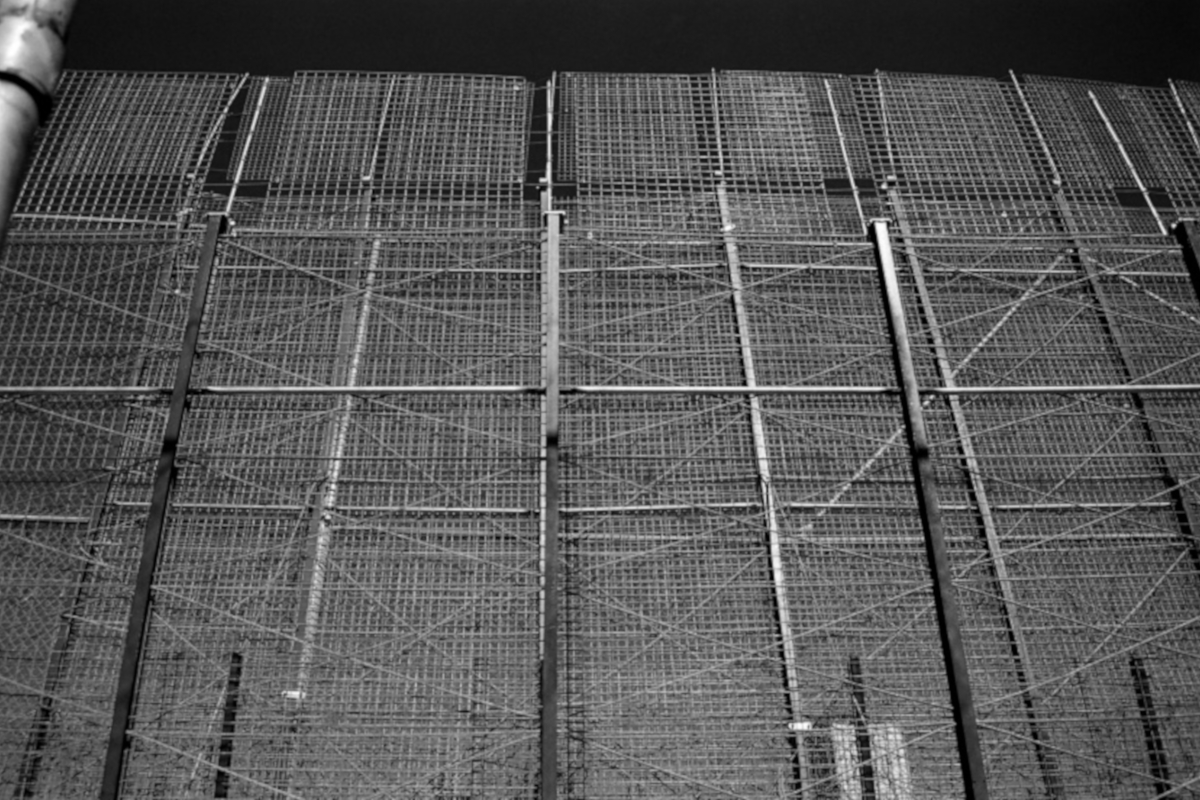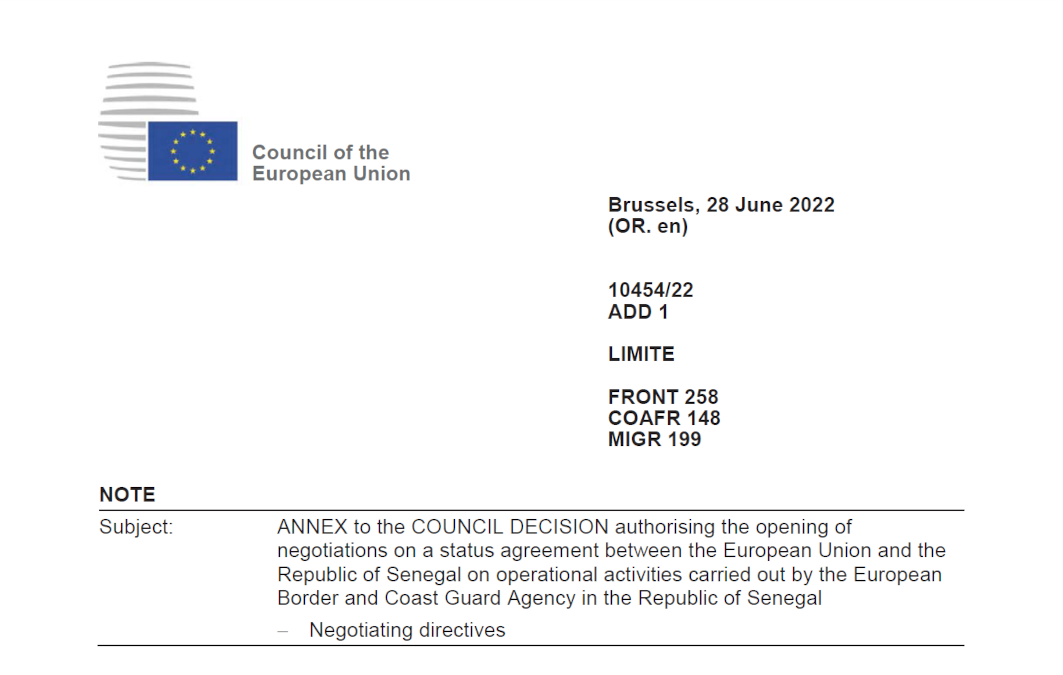EU: Tracking the Pact: New “operational partnerships” with Morocco and Niger
Topic
Country/Region
21 July 2022
Last week the European Commission announced two new “operational partnerships” with Morocco and Niger aimed at preventing and punishing human smuggling. The day before the Commission’s announcement, the International Centre for Migration Policy Development signed a cooperation agreement with the Nigerien authorities, to support “the fight against irregular migration”.
Support our work: become a Friend of Statewatch from as little as £1/€1 per month.

Those for whom “a fence is worth more than human lives”
The agreement with Morocco came just three weeks after at least 37 people died at the Spanish-Moroccan border in the enclave of Melilla, after an attempt by some 2,000 people to enter Spanish territory.
Video footage showed Spanish officials launching smoke grenades at people trapped between border fences, officials throwing stones, injured and dead people lying on the ground receiving no assistance or attention, Moroccan gendarmes acting on Spanish territory and “hot returns” (summary deportations) to Morocco of many people. As the Andalusian Association for Human Rights (APDHA) put it, these were the actions of people for whom “a fence is worth more than human lives.”
Two weeks after the tragedy in Melilla, on 8 July, the Spanish interior minister, Fernando Grande-Marlaska and the European Commissioner for Home Affairs and Migration, Ylva Johansson, met with the Moroccan interior minister, Abdelouafi Laftit, in Rabat. The Commission’s press release notes:
“The Commissioner and the two Ministers regretted every death of people attempting unlawful entry, including those that occurred during the recent distressing events on 24 June 2022. They also regretted the injuries, including to members of the Moroccan and Spanish border forces. These events put traditional methods of combatting human smuggling under strain.
Besides the human tragedy, they showed how very dangerous and violent human smuggling networks were, and the extent to which they were prepared to take any risk.”
As APDHA argue, discussing the Spanish government’s response to the tragedy (emphasis added):
“The reference to mafias serves to evade responsibility, criminalise and depersonalise migrants as victims of criminal activity, and indicates that this criminal activity must be fought with full force… But they forget that we are not talking about objects, but subjects. Subjects because they are people who decide and have the right to migrate. Because they have made the decision to leave their countries after suffering the consequences of the depletion of their resources, famine, dictatorships, war... because they have made the decision to escape and look for a safe country, like those 120,000 people [to Spain] coming from Ukraine, whom our rulers applaud and welcome, at least in the eyes of the gallery, with open arms.”
Partnership with Morocco: “solid results”
The anti-smuggling rhetoric is fully deployed in the Commission’s announcements regarding its new “partnerships” with Morocco and Niger – and anti-trafficking also gets a look in. Indeed, in the press release on the agreement with Morocco (pdf), the Commission nonsensically refers to an “anti-smuggling partnership… to tackle human trafficking,” wilfully ignoring the fact that smuggling and trafficking are two distinct crimes under international law.
What of the substance of the new agreements? Given that the texts themselves have not been made public, there are, so far, only press releases to rely on.
The agreement with Morocco builds on the “solid results” of previous years, and will cover “in particular, support for border management, enhanced police cooperation (including joint investigations), awareness-raising on the dangers of unlawful migration and enhanced cooperation with EU agencies responsible for home affairs.”
There is no further information, although leaked documents give some indication of the EU’s aims with regard to the North African state (see here, here and here).
Partnership with Niger: “moving up a gear”
With regard to Niger, the Commission's press release (pdf) states that the EU’s relationship with the country is “moving up a gear, from both an operational and a political point of view,” and the press release provides some information on the new partnership’s substance.
It will “maximise the impact” of a Joint Investigation Team (JIT) that has been operating in Niger since 2017, in which time “over 700 criminals have been arrested and over 400 judicial proceedings have been launched.” There will also be an effort to “strengthen links with other operational activities in the region to address migrant smuggling.”
This may refer to the foreign policy mission European Union Capacity Building Mission (EUCAP) Sahel Niger, originally deployed to help assist the development of the country’s police and internal security forces. Migration was added later as a further objective.
A working agreement between Frontex and EUCAP Sahel will “support the joint commitment by the European Union and Niger to improve border-management structures in Niger and crack down on people traffickers and smugglers and those who seek to profit from the distress of migrant men, women and children,” through information exchange, training and the sharing of “best practices” and advice with the Nigerien authorities.
Frontex is also planning a working arrangement with Niger, with the goal of “strengthening risk management and assessment capabilities with a view to facilitating legitimate border crossings and tackling irregular migration and cross-border crime.”
The Commission will also launch new “information and awareness-raising campaigns” on the risks of irregular migration. “By challenging the narratives put forward by people smugglers, the campaigns set out to inform migrants and influence their decisions to migrate,” says the press release.
The press release also refers to the Coordination Platform on Migration (Cadre Concertation de Migration or CCM). A Mercator Foundation policy briefing from 2019 (pdf) argued that this has given the EU “a permanent role in the formulation of Nigerien migration policy recommendations,” and this is to serve as “a coordination and monitoring mechanism for implementing the Operational Partnership.”
ICMPD: further cooperation with Niger
The day before the Commission announced its new agreement with Niger, the International Centre for Migration Policy Development (ICMPD) – an international organisation with 19 member states, primarily from central and northern Europe – signed a “seat agreement” with the Sahel state, giving it a base in the country.
“Niger is the third country in West Africa in ICMPD’s expanding portfolio,” said a statement published by the organisation, and following the seat agreement the two parties “will explore innovative, demand-driven initiatives in close collaboration with government institutions and International Partners to better position Niger as a key contributor to the discourse on migration management worldwide.”
Hassoumi Massoudou, the minister for foreign affairs and cooperation, was quoted as saying:
“This cooperation [between Niger and the ICMPD] has gradually developed since 2013, with the implementation of certain programmes and projects in the framework of migration management, particularly at the regional level. I hope that the signing of this agreement will usher in a new and decisive stage in the consolidation of relations between our two Parties, in a spirit of partnership and mutual trust, and will enable the Centre, while meeting the aspirations of the Nigerien State in the implementation of its migration policy, to increase its operational capacity in Niger."
Further reading
- 24 May 2022: European Commission: Update on state of play of external cooperation in the field of migration policy
- 28 April 2022: Spain and Morocco renew security cooperation agreement linking organised crime and "irregular" immigration
- 9 March 2022: Tracking the Pact: EU eyes future Frontex deployments in Morocco
- 10 March 2022: Frontex to boost border control efforts in Niger, Algeria and Libya
Image: The Melilla border fence in 2006. Image: Noborder Network, CC BY 2.0
Our work is only possible with your support.
Become a Friend of Statewatch from as little as £1/€1 per month.
Spotted an error? If you've spotted a problem with this page, just click once to let us know.

